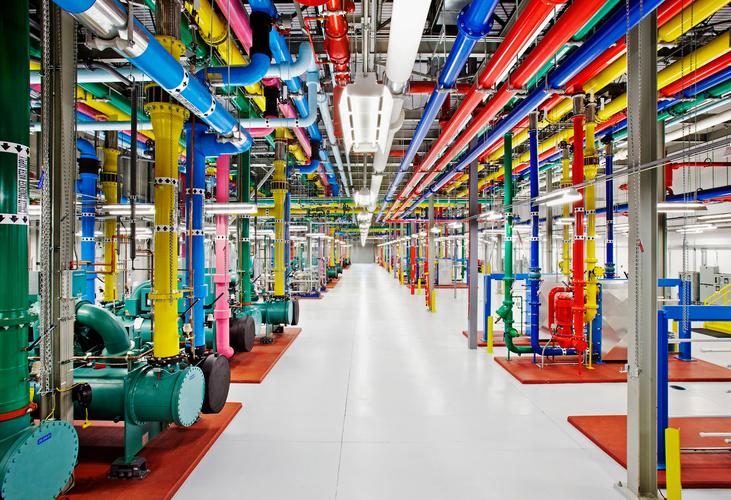
Google is teaming up with Symantec and others to enter the ‘cold storage’ market for information that needs to be kept but isn’t accessed frequently.
Archiving remains a key component of an organisation's overall strategy to protect and secure information and now Google is entering that market with its own cloud-based beta called Nearline, a product designed to straddle price and features of both online and offline storage.
Nearline will take on Amazon’s Glacier cold storage service and attempts to cut a path between relatively expensive disk-based online storage and offline backup systems based on tape or in Facebook’s case, multi-petabyte(PB) optical BluRay disc cabinets.
Google's new storage tier enters the unsexy end of the storage market, usually associated with archiving files -- perhaps for compliance reasons -- that rarely if ever need to be accessed. That information is typically dumped on the cheapest media possible, preferably with a long time. In recent years, thanks to the explosion of data and tendency to keep everything, there’s been growing interest in cheap, infrequently accessed storage.
Last year, analyst firm IDC discussed the emergence of new cold storage options as a response to the flood of data that mighty only be accessed for a short time but nonetheless needed to be stored. It cited Facebook’s calculation that only eight percent of photos uploaded to the social network are accessed frequently.
Meanwhile, new figures from IDC this week showed sales of storage to hyper-scale buyers -- such as Facebook, Google, Microsoft and Amazon -- was the fastest growing area of the enterprise storage market in Q4 2014, outpacing EMC, HP and Dell year on year by a factor of 10.
At the hyperscale end of the spectrum, Facebook last year revealed details of new prototype that would serve the chilliest end of its 150 petabyte cold storage system.
The prototype cabinet contained 10,000 BluRay discs, holding one petabyte (PB) of data but was set to scale up to 50 PB. The system offered 50 years of durability, a 50 percent reduction on the costs of its disk-based cold storage and, importantly, slashed energy consumption on its former cold storage configuration by 80 percent. That could make a big difference in Facebook's cold storage facility, which is designed to cater to up to three exabytes of data.
Google stressed that Nearline addresses security by offering cheap and redundant storage at multiple physical locations.
At one cent per GB, Nearline costs same as Amazon’s Glacier, but Google differentiates its service on time to retrieval. Glacier is built to on the assumption that several hours is suitable, whereas Google says Nearline “enables 3 second response times for data retrieval”. Google measures its service on a “time to first byte” basis.
As with Amazon, there are costs associated with retrieval. Google will charge one cent per GB for retrieval. Also, Google charges on a 30 day cycle, so the user will incur the full $10 fee for one TB of data even if it’s overwritten or deleted after one day. Then there are data transfer costs, which vary between region. For Australia, the cost of data going outwards to Australian destinations will cost between 19 cents and 15 cents per GB, with the lower rate applied to 10TB and higher.
The search company is also teaming up with several storage vendors to ease the path to Nearline. These partners include Veritas, Symantec’s former information management unit, NetApp, Iron Mountain, and Geminare.
Symantec’s NetBackup version 7.7 will support Nearline, while NetApp’s SteelStore appliance is configured to stream data to Nearline.
Read more: Companies failing to maintain payment-card protections after PCI DSS certification
This article is brought to you by Enex TestLab, content directors for CSO Australia.